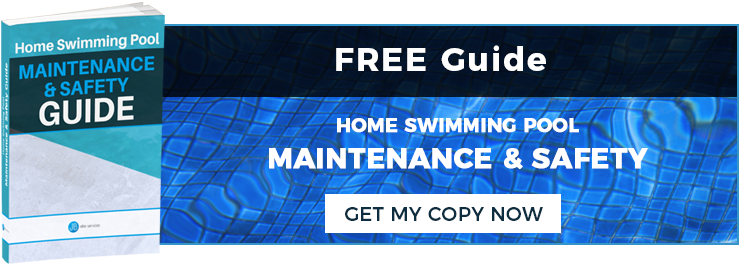As suppliers struggle to meet demand and protect their staff, cleaning chemicals for swimming pools have suddenly become much more difficult to get hold of. How do you keep your swimming pool safe, clean, and user-friendly during lockdown if you’re not able to access your usual chemicals for any reason?

Business As Usual… Almost
The first thing to remember is that most home pool chemical suppliers are still delivering. For most companies it’s business, if not quite, as usual, then at least as best as they can manage. Most manufacturers are still producing chemicals and restocking their wholesalers.
But with staff shortages, furloughed workers, and uncertain supply chains, these deliveries may be taking longer than usual. So what are your other options for keeping your pool clean in the meantime?
Keep The Pool Covered When Not In Use
The first thing to remember is to keep the pool covered. It sounds obvious, but effective covering makes keeping the pool clean immeasurably easier. If dirt doesn’t get in there in the first place then that’s a large part of the battle already won.
A variety of pool covers are available, from electrically powered to more eco-friendly hand-operated options.
Use A Robotic Pool Cleaner
One high-tech solution is a robotic pool cleaner. These handy little machines roam the pool, scrubbing away dirt with sturdy brushes and vacuuming it up. The big advantage is there’s very little work for you to do; just turn it on and let it do its thing before emptying the dirt out afterward.
The main drawback is that robotic pool cleaners are not suitable for all pools. Some can’t deal with steps and some struggle on certain surfaces. It’s worth doing your homework first to see which one would best suit your pool.
Replacing Chlorine With Salt
A lower-tech, if more drastic, solution, is to replace the chlorine in your pool with salt. This isn’t quite as simple as chucking salt in instead of chlorine, however. Salt water pools are actually partially chlorinated, and a salt chlorine generator system would need to be fitted.
These work by electrolysis: a weak current passed through the pool turns salt into sodium hydrochlorite, a powerful cleaning agent. Salt water pools have been increasing in popularity over the last few years, as people look to move away from chemical cleaning agents to more natural options.
Two things to note, however:
1) Salt water swimming pools are not to everyone’s taste. Make sure you enjoy the feeling of swimming in salt water before making the change.
2) Salt is highly corrosive, so you have to use pool-grade sodium in your pool. Table salt won’t suffic! You could damage your pool pump and filters if they are not designed o be used on salt pools so make sure your pool equipment is suitable to be used with a salt chlorine generator.
Oxygen – Ozone Cleaning
Alternatively, you can turn to the power of oxygen to keep your pool clean. Oxygen cleaning works by drawing oxygen from the air and converting it to ozone, which is injected into the water. The ozone oxidises waste material in the water, cleaning the pool thoroughly.
Some pool cleaning companies offer this method as a service, or it is possible to buy and fit a system to your pool’s current filter. Ionizing pool cleaning systems use copper and silver particles to charge the water and inhibit bacterial growth.
Either way, it’s a chemical-free way of keeping the pool sparklingly clean.
Green Cleaning Agents
For an even greener option, it’s possible to use sphagnum moss to keep the pool clean. This isn’t as crazy as it sounds.
Sphagnum moss is naturally antibacterial, and its presence in a pool cleaning system inhibits bacterial, fungal and mold growth. Users of sphagnum moss report improved water quality, akin to swimming in a freshwater lake or river, as much less chlorine is needed.
One trial at a busy public swimming pool in the US reported that they used a third of the chemicals they previously had!
Hold On!
With lockdown restrictions easing, we’re ready to resume our routine maintenance services, including cleaning.
Please give us a call if you have any questions about the up-keep of your pool – or if you require emergency repairs.
Image source: Pixabay

